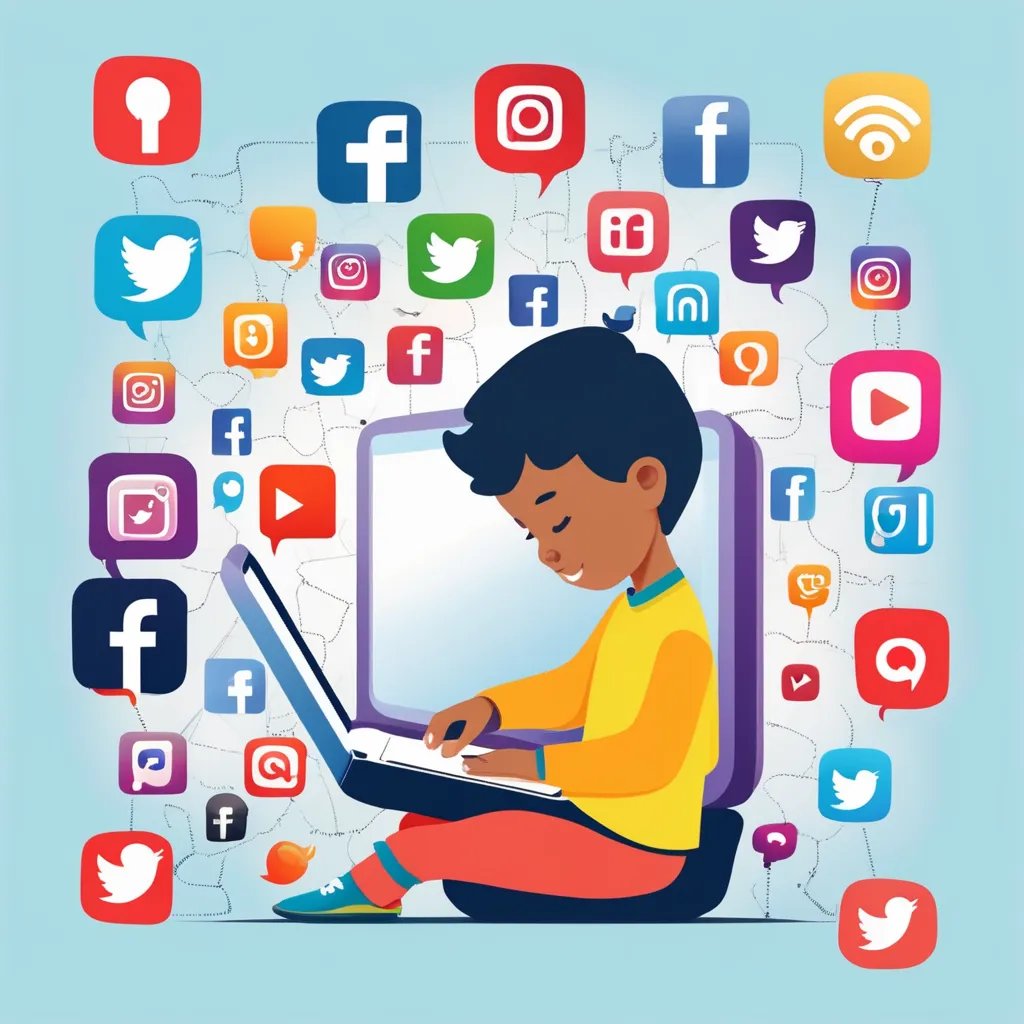
Social media has become an integral part of our lives and children are no to this trend. With the advent of smartphones and tablets, it is becoming increasingly common for children at different ages to have access to social media platforms. While there undoubtedly benefits to this technological advancement, it is crucial to understand the effects of social media exposure on child development.
Firstly, let’s explore how social media impacts children at different ages. For younger children, exposure to social media can provide educational content and improve their cognitive skills. Platforms with age-appropriate content can enhance learning in various subjects, fostering creativity, and improving problem-solving abilities. However, parents must carefully monitor the amount and type of content their children engage with to ensure it aligns with their development stage.
As children grow older, social media begins to exert more significant influences on their emotional and psychological well-being. Pre-adolescents and teenagers often use social media as a means of self-expression and exploring their identities. It becomes crucial at this stage for parents and educators to teach responsible online behavior and guide children in distinguishing between real-life and virtual relationships. In addition, excessive social media use during these formative years can potentially lead to decreased self-esteem, cyberbullying, and mental health issues such as anxiety and depression.
Next, let’s address the long-term effects of childhood social media use. Studies suggest that excessive exposure to social media during childhood can lead to addictive behaviors and difficulty in managing time effectively. It may impede the development of crucial life skills like resilience, patience, and face-to-face communication. It is essential for parents to set boundaries and encourage outdoor activities, interpersonal interactions, and hobbies that promote a healthy balance with technology.
However, it is not all negative. Social media use in children does offer some benefits. It allows them to connect with family members and friends who are geographically separated. It can also provide a sense of belonging and support for children experiencing challenging circumstances or those facing social isolation. Furthermore, social media can create awareness about important global issues and inspire children to take action, fostering civic engagement at an early age.
Moreover, social media use impacts childhood socialization, communication, and learning. Children often develop their social skills through online interactions, learning how to express themselves, share opinions, and collaborate with others. However, it is essential to strike a balance between online and offline socialization to ensure children develop effective real-life communication skills as well.
In terms of learning, social media provides access to a vast amount of information and educational resources. It can facilitate peer-to-peer learning, enabling students to share knowledge, collaborate on projects, and engage in meaningful discussions. Educators can also utilize social media platforms as a supplementary tool to enhance traditional teaching methods, making learning more interactive and engaging.
In conclusion, social media exposure has both positive and negative effects on child development. While it can enhance learning, socialization, and communication skills, it is crucial for parents, educators, and society as a whole to navigate this digital landscape responsibly. By setting appropriate limitations, monitoring content, and fostering a healthy balance between online and offline activities, we can maximize the benefits while mitigating potential risks associated with social media use in children.
Click here for more Article : https://socialinfozone.com/
